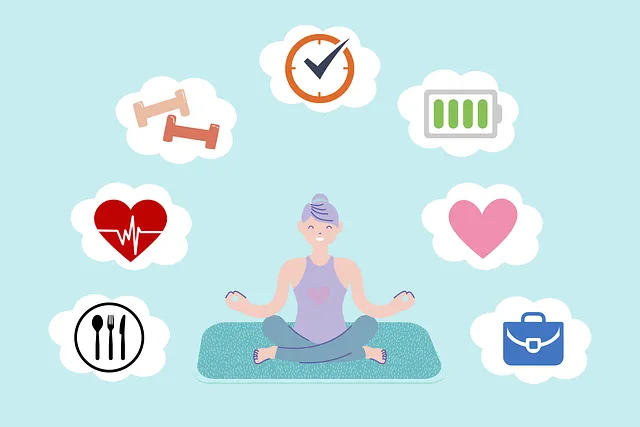The Kaiser Permanente Mental Health Access Center in Littleton is pioneering accessible and comprehensive mental wellness self-assessment tools, addressing a growing need for early detection and intervention. By integrating questionnaires, interviews, behavioral observations, and audio content like the Mental Wellness Podcast Series, the center offers a holistic approach to mental health management. Their inclusive methods prioritize cultural sensitivity and personalized guidance, empowering individuals from diverse backgrounds to proactively improve self-esteem, build resilience, and develop coping skills for better overall well-being.
Mental wellness self-assessment tools play a pivotal role in empowering individuals to take charge of their mental health. This article explores the development and implementation of such tools, using the Kaiser Permanente Mental Health Access Center in Littleton as a case study. We delve into the need for accessible self-assessment resources, discuss effective tool design, and examine the impact at the Kaiser Permanente center, highlighting strategies to enhance mental wellness support in community settings.
- Understanding the Need for Self-Assessment Tools: Exploring the Kaiser Permanente Mental Health Access Center in Littleton
- Developing Effective Mental Wellness Self-Assessment Tools
- Implementation and Impact: Ensuring Accessibility at the Kaiser Permanente Mental Health Access Center
Understanding the Need for Self-Assessment Tools: Exploring the Kaiser Permanente Mental Health Access Center in Littleton

The development of self-assessment tools for mental wellness is a critical aspect of modern healthcare, and organizations like Kaiser Permanente play a pivotal role in this domain. The Kaiser Permanente Mental Health Access Center in Littleton serves as a prominent example of an initiative aimed at enhancing mental health services. This center has recognized the growing need for accessible and comprehensive assessment resources, especially in an era where mental health concerns are increasingly prevalent.
By offering self-assessment tools, the center aims to empower individuals to take charge of their mental well-being. These tools can be valuable for early detection, risk assessment (for mental health professionals), and understanding various aspects of one’s mental state, including mood management. Furthermore, cultural sensitivity in mental healthcare practice is a key focus, ensuring that these assessments cater to a diverse range of individuals, thereby fostering more inclusive and effective treatment options.
Developing Effective Mental Wellness Self-Assessment Tools

Developing effective mental wellness self-assessment tools is a multifaceted process that requires careful consideration of various factors. Organizations like the Kaiser Permanente Mental Health Access Center in Littleton have pioneered initiatives aimed at enhancing mental health access and support. These centers often design self-assessment tools tailored to individual needs, focusing on accessibility and usability. One key aspect is integrating diverse assessment methods, including questionnaires, interviews, and behavioral observations, to capture a comprehensive view of an individual’s mental wellness.
The Mental Wellness Podcast Series Production can serve as a valuable resource for creating engaging and informative self-assessment tools. By leveraging audio content, professionals can offer interactive experiences that improve coping skills development and boost confidence. Incorporating real-world examples and expert insights not only makes the assessments more relatable but also encourages users to actively engage with their mental health journey. Such tools are essential in promoting early intervention and fostering a culture of open dialogue around mental wellness.
Implementation and Impact: Ensuring Accessibility at the Kaiser Permanente Mental Health Access Center

At the Kaiser Permanente Mental Health Access Center in Littleton, the implementation of self-assessment tools has had a profound impact on accessibility and patient outcomes. These tools are designed to empower individuals in assessing their mental wellness and taking proactive steps towards improvement. By offering a range of resources tailored to various aspects of mental health, the center ensures that patients can access essential services for self-esteem improvement, resilience building, and communication strategies.
The accessibility aspect is paramount, as it allows individuals from diverse backgrounds to take charge of their mental well-being. The center’s approach emphasizes the importance of early intervention and ongoing support, ensuring that patients receive personalized guidance and care. This comprehensive strategy not only enhances the effectiveness of treatment but also fosters a sense of empowerment and self-awareness among those seeking help for their mental health.
The development of mental wellness self-assessment tools, as exemplified by the Kaiser Permanente mental health access center in Littleton, is a vital step towards enhancing accessibility and improving mental healthcare. By utilizing these tools, individuals can proactively assess their mental well-being and seek appropriate support early on. The successful implementation at the Kaiser Permanente center underscores the impact such initiatives can have on fostering a healthier community, ensuring that folks have the resources they need to navigate life’s challenges with resilience and strength.






